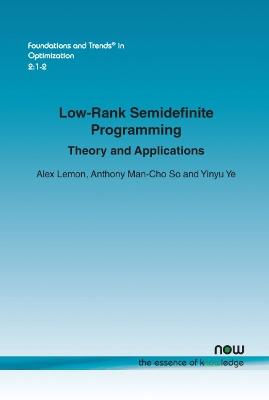Foundations and Trends (R) in Optimization
1 total work
Low-Rank Semidefinite Programming
by Alex Lemon, Anthony Man-Cho So, and Yinyu Ye
Published 4 August 2016
Finding low-rank solutions of semidefinite programs is important in many applications. For example, semidefinite programs that arise as relaxations of polynomial optimization problems are exact relaxations when the semidefinite program has a rank-1 solution. Unfortunately, computing a minimum-rank solution of a semidefinite program is an NP-hard problem.
This monograph reviews the theory of low-rank semidefinite programming, presenting theorems that guarantee the existence of a low-rank solution, heuristics for computing low-rank solutions, and algorithms for finding low-rank approximate solutions. It then presents applications of the theory to trust-region problems and signal processing.
This monograph reviews the theory of low-rank semidefinite programming, presenting theorems that guarantee the existence of a low-rank solution, heuristics for computing low-rank solutions, and algorithms for finding low-rank approximate solutions. It then presents applications of the theory to trust-region problems and signal processing.
